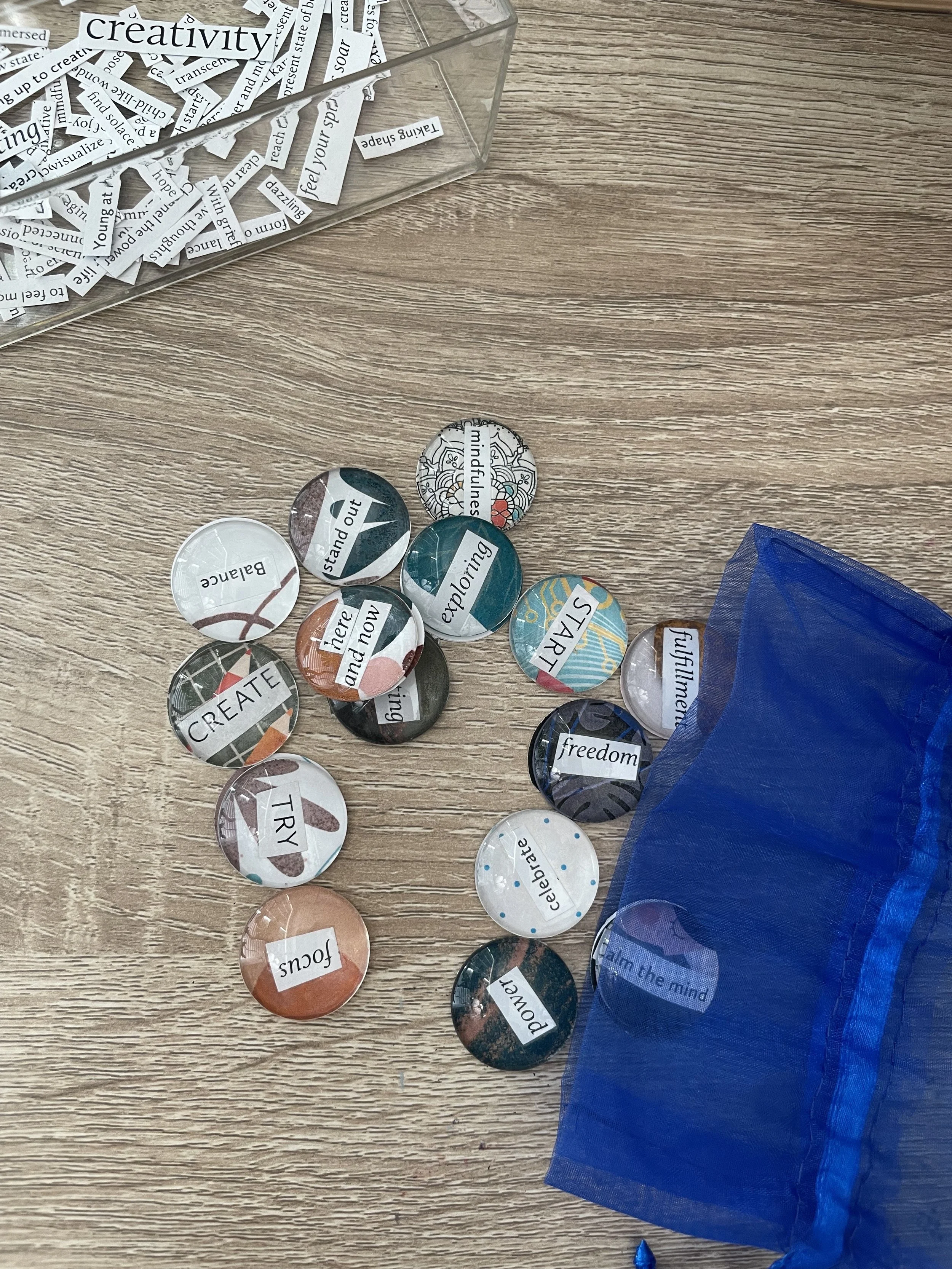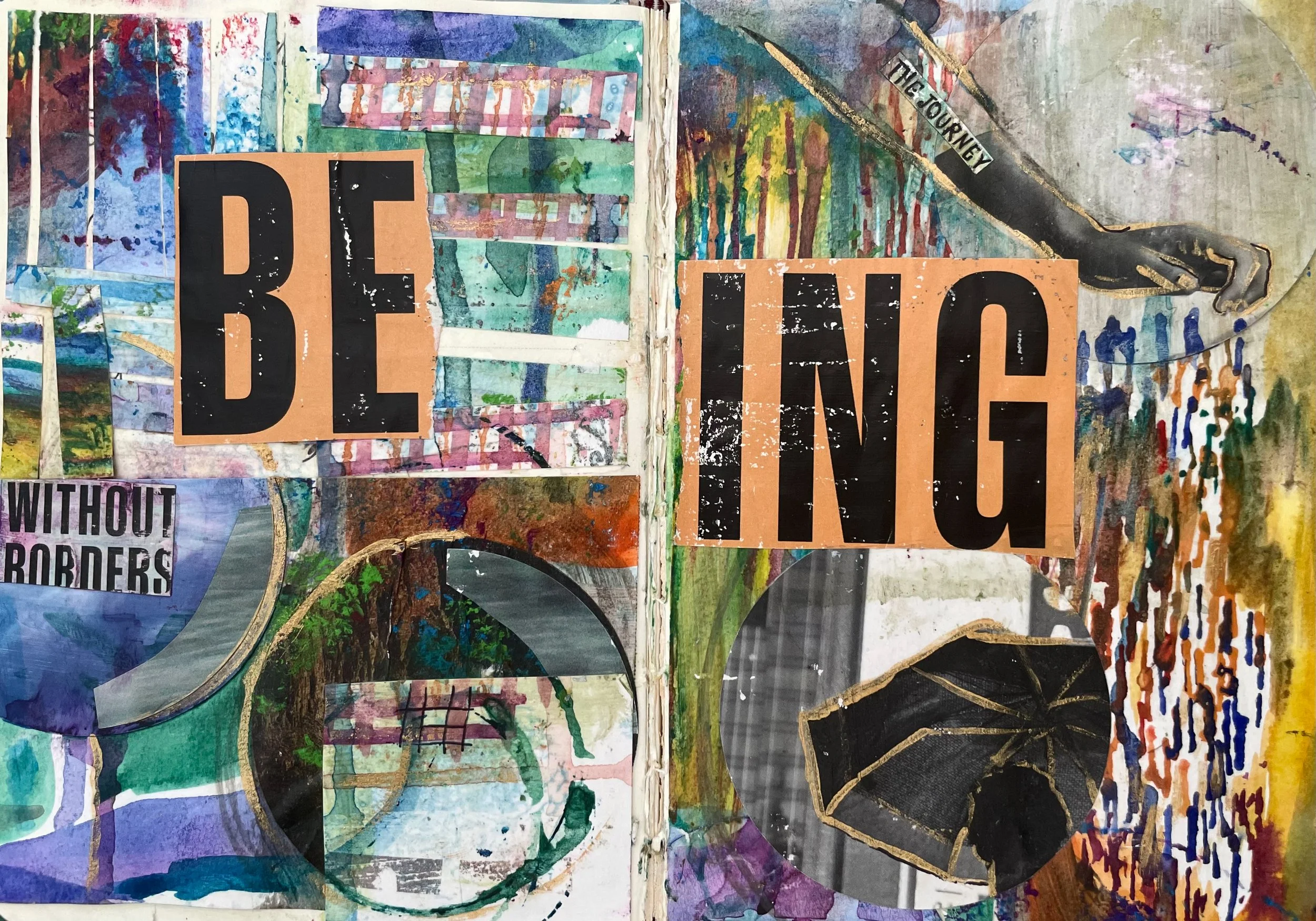Why Acceptance and Commitment Therapy (ACT) is a Highly Effective Treatment for OCD
Learn how Acceptance and Commitment Therapy helps reduce obsessive thoughts and compulsive behaviors
If you don’t know me, hi there! I’m Kristy Leone, LCPC, LCPAT, ATR-BC (she/they), and I am a licensed mental health counselor and art therapist specializing in OCD. I am here to help overthinkers with OCD of all ages feel better and live more authentic lives. Read more about my background and training here!
If you or someone you love is struggling with OCD, there is a way forward—and it doesn’t have to mean constant battles with your thoughts. Acceptance and Commitment Therapy (ACT) is a science-backed, empowering approach to OCD treatment that helps you stop fighting your mind and start living your life. Instead of trying to control or eliminate intrusive thoughts, ACT teaches you how to make space for them while focusing on what truly matters to you. It’s not about being “thought-free”—it’s about being free to choose how you want to live.
In this blog post, I’ll explore ACT and how I help overthinkers treat OCD at Labyrinth Art and Wellness.
What Is ACT and How Does It Treat OCD?
Acceptance and Commitment Therapy (ACT) is a gentle, empowering approach to OCD that helps you respond to intrusive thoughts and anxiety without getting stuck in them. Instead of trying to push thoughts away or figure them out perfectly (which often makes things worse) ACT teaches you how to notice what your mind is doing, make space for those thoughts, and keep moving toward the life you want. It’s not about fighting your brain: it’s about learning to live alongside it with more ease and confidence.
What makes ACT so helpful for OCD is that it focuses on building something called psychological flexibility. That means you learn how to sit with discomfort while still making choices that line up with your values: whether that’s being a present person, expressing your creativity, or just getting through the day without rituals running the show. ACT doesn’t promise to erase every difficult thought, but it gives you the tools to stop letting those thoughts control your life.
ACT vs. ERP: What’s the Difference and Why Both Can Matter in OCD Treatment
ERP (Exposure and Response Prevention) has earned its reputation as a leading treatment for OCD—and it can absolutely help reduce compulsions and avoidance. But if you’ve tried ERP and felt overwhelmed, shut down, or like the approach didn’t quite fit, you’re not alone. Especially for neurodivergent folks—including autistic individuals, people with ADHD, or those with sensory sensitivities—the traditional ERP model can sometimes feel like it asks too much, too fast, without enough support for the internal experience.
That’s where ACT—Acceptance and Commitment Therapy—can make a meaningful difference! Rather than focusing only on facing fears head-on, ACT helps you build the emotional tools to stay grounded when hard thoughts or feelings show up. It emphasizes acceptance, mindfulness, and connecting to your personal values—so you’re not just resisting compulsions, you’re moving toward the kind of life you actually want to live.
Managing Intrusive Thoughts with ACT
Intrusive thoughts are a common and challenging part of OCD and anxiety, often causing intense anxiety and distress. Acceptance and Commitment Therapy (ACT) offers a compassionate way to manage these unwanted thoughts by teaching you to notice them without judgment and without trying to push them away. Instead of getting caught in the cycle of overthinking or compulsive behaviors, ACT helps you create space between you and your thoughts. This shift allows you to stop struggling against the thoughts and start focusing on what truly matters—your values and meaningful actions. By building this kind of mental flexibility, ACT empowers you to live more fully, even when intrusive thoughts show up.
Living Your Values: Moving Beyond OCD to a Meaningful Life with ACT
Living with OCD often feels like you’re trapped in a constant battle with your thoughts and fears. It can be exhausting when every choice seems influenced by anxiety or the need to perform rituals. Acceptance and Commitment Therapy (ACT) invites you to step out of this struggle by reconnecting with your deepest values—the things that truly give your life meaning, like love, creativity, or personal growth. Instead of focusing solely on trying to stop OCD symptoms, ACT encourages you to live through the discomfort and take actions that align with what matters most to you.





